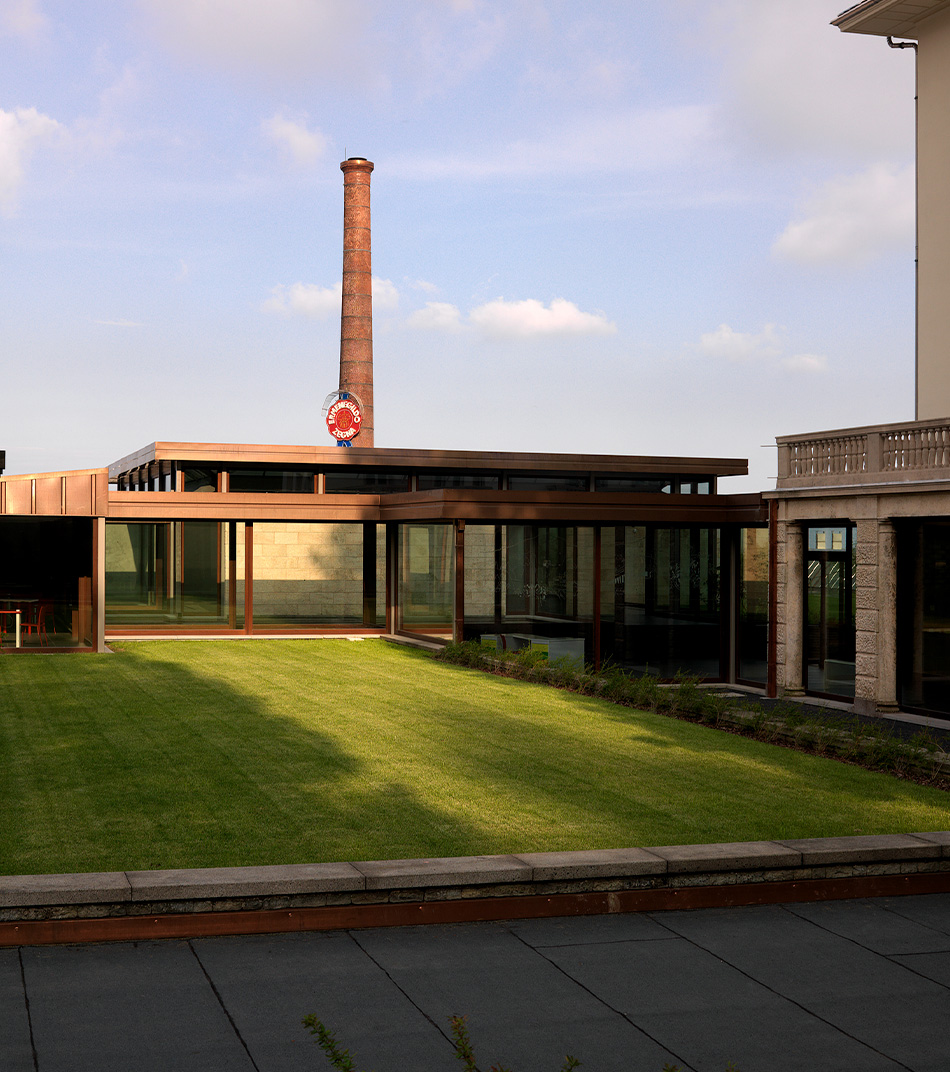Hand weaving has been an activity at San Patrignano for over 30 years and is one of the old artisanal trades that’s always been taught in the Community. Manual work, in fact, enables young people to discover important values: know-how, the discipline needed to achieve objectives, seeking perfection in a job and the resulting attitude to beauty, which helps them recover their interior beauty and self esteem.
In San Patrignano’s weaving section, 30 girls work everyday on weaving and sewing products for the outside world, thus supporting the community’s economic independence. Fondazione Zegna has been supporting the Community’s workshop for four years now, the objective being to promote this old artisanal trade, modernize it and develop it to meet the tastes of the fashion and design markets. The project is coordinated by Barbara Guarducci (www.barbaraguarducci.com), a designer and creative director of socially useful textile design projects.
Can you tell us about the origins and development of this project supported by Fondazione Zegna and coordinated by Barbara Guarducci?
San Patrignano’s weaving project is now in its fourth year. We’ve come a long way and now have a business that’s working at full capacity for the fashion and design market, for international brands, Faliero Sarti, Chanel, Victoria Beckham, Lanerie Agnona and Malo, and big firms of architects (including Peter Marino). It’s been a gradual, structured process of team work. We started up in 2013 by re-organizing the weaving section, which was in need of innovation and a rethinking of its products for a contemporary market. With the aim, of course, of keep the quality high whilst breaking completely new creative ground. In parallel with the stylistic work and wide-ranging experimentation of materials and processes, Barbara worked with the staff to create a solid methodology for gradually opening up to the world of fashion and design. The 30 girls were involved in this process of renewal and did proper training on many of the themes dealt with.
What impact did the training part of the project have on the girls’ development?
The girls’ training was crucial. It created a new and more conscious level of involvement that gave them a sense of responsibility and pride in their work. This approach fosters discipline and concentration, two qualities useful in weaving and above all in their gradual return to normal life. Since 2015, in fact, Fondazione Zegna has been funding two 1-year internships for girls who, on completing the training course, want to get work experience in the weaving sector, so they can develop their professional skills in a trade they already know. This experience is very useful and stimulating, just as their activity in the Community is vital for both the flow of work and the example they set for the girls still training.
How important for the girls are these opportunities to work with the outside world?
With Barbara, we organized a series of meetings with key people in fashion and design and their reactions were immediately enthusiastic. Opening up to the market and talking to these people was very stimulating for the Community, an injection of new energy and new ideas to develop together. Experiencing an outside world that’s completely different is a great help to the girls. They get a close-up view of working methods, approaches to creativity and technical processes, how to develop an idea that grows into something to take to market. As Barbara herself emphasized, “this experience is invaluable: the opportunity to see a part of the outside world that’s so healthy, focused and constructive inevitably leads them to reflect on themselves. Their daily struggle against their own fragility, doubts and fatigue is played out on the loom, and their interior progress is transformed into the capacity to turn out a well made product”.
Do all the girls on this project go into the textiles industry?
No, not necessarily. The girls’ experience of weaving doesn’t tie them to this industry. Some of them are really serious about this work and do further training in the clothing sector, while others build on their experience to move elsewhere, with the perseverance and focus that weaving taught them.
And this is how the girls themselves see the value of the project supported by Fondazione Zegna.
Lisa, 23, Fondazione Zegna 2016 internship
For me the internship project is not only a big opportunity but also a chance to integrate and grow in both work and human terms. It lets me do what I like doing and enables me to take on a new role, helping others. This means being able to organize myself with greater awareness, it helps me become independent.
Kautar, 26, Fondazione Zegna 2016 internship
I’ve been living in Sanpa for four years, with my daughter who was born here. I’m glad I learned to be a weaver and can teach the other girls , because I like it, it helped me grow and gives me a lot of satisfaction. The Fondazione Zegna internship enabled me to build a base for a future with my little girl. I thank the Foundation and San Patrignano from the bottom of my heart for having taught me how to live.
Martina, 33
My weaving work enables me to put myself to the test and overcome my limits everyday. The satisfaction I get from seeing a finished product gives me self confidence and, day after day, I believe more and more in my potential. It’s a great feeling to realize that wanting empowers you, and that with determination, tenacity and commitment you can achieve really ambitious objectives. Everyday, as well as weaving the weft and warp of scarves, I do the same thing with myself, with my strengths and weaknesses. And the finished product that people admire, that’s sold in stores all over the world, reflects all the work we do on ourselves.


